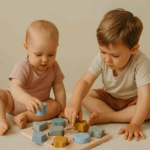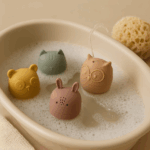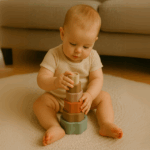Playing without Borders: The Right Toys for Children with Disabilities
Playing without Borders: The Right Toys for Children with Disabilities
Playing is the ultimate way for children to explore the world and grow. It is not only fun, but also plays an essential role in their development. For children with disabilities, playing is often challenging, but adapted toys can make a world of difference. In this article, we explore the importance of adapted toys and show what options are available.
The Variety of Constraints
Children with disabilities have different types of challenges, ranging from physical limitations to cognitive or sensory impairments. Each disability has a unique impact on their play and the types of toys best suited for them.
Adapted toys are specially designed to meet the needs and abilities of children with disabilities. It not only helps them have fun, but also contributes to their development and improvement of skills in different areas.
Toys for Children with Autism
For children with autism, toys that respect their sensory needs and stimulate their imagination are very important. Calm colours, tactile variety and toys that encourage structured play can contribute to a stimulating yet calming play experience.
Toys for children with ADHD
For children with ADHD, toys that respect their need for movement and sensory stimulation are very important. Toys that encourage movement, provide tactile feedback and help improve focus can be valuable for these children.
This article offers informative insights and suggestions regarding adapted toys for children with disabilities, including autism and ADHD. However, we are not psychologists, medical professionals or other qualified experts in the field of child development.
For specialised advice regarding toy selection for children with disabilities, we strongly recommend consulting a certified specialist or child psychologist. Each situation is unique and requires tailor-made advice and guidance from a professional qualified in this field.
Our aim is to create awareness about the importance of adapted toys and to inform parents and carers about possible options. For personalised advice, rely on the expertise of qualified professionals who can best support your child.
 Puzzles
Puzzles Water toys
Water toys Role-playing toys
Role-playing toys Sand toys
Sand toys